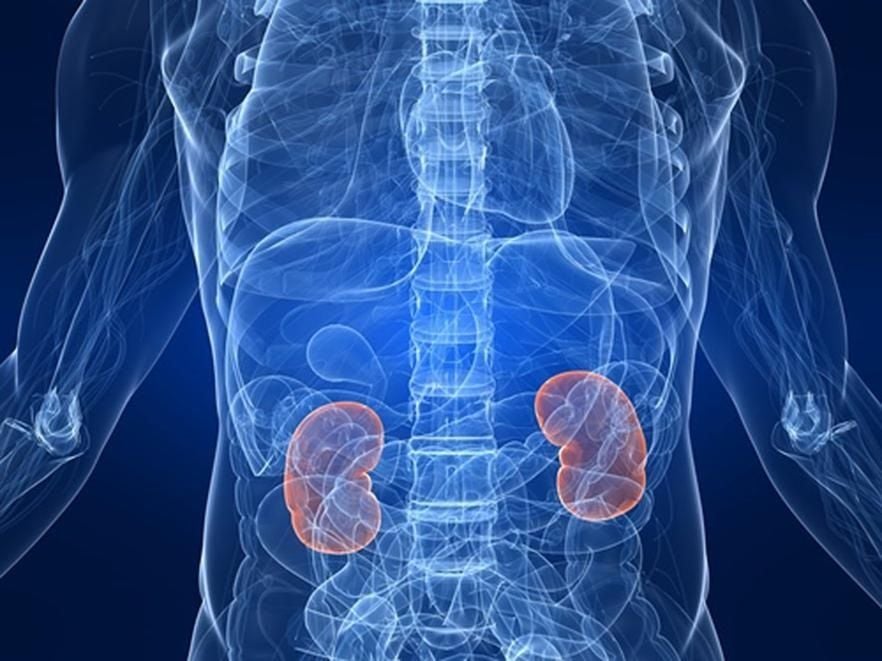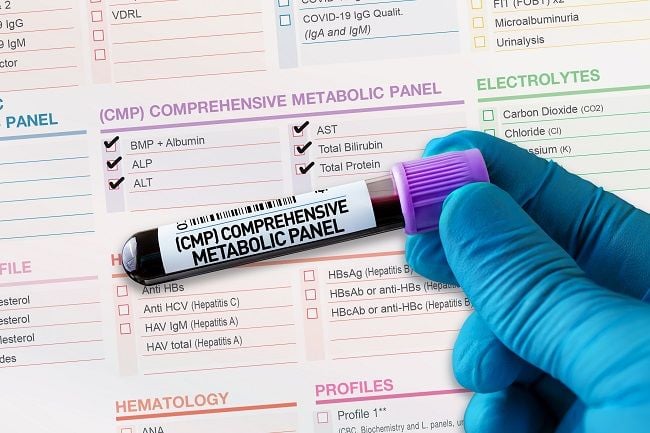The bun/creatinine ratio helps to check how your kidneys are working. It looks at the blood urea nitrogen (BUN) and creatinine levels in your blood. A high bun creatinine ratio may show that you are dehydrated or have kidney disease. A low ratio might mean that you have liver disease or are not getting enough nutrition.
BUN Creatinine Ratio and Kidney Health
The health of our kidneys is very important for our overall well-being. Healthcare providers use several tests to check how well our kidneys work. One of these tests is the BUN creatinine ratio test. This test is an important marker for kidney health. In this blog, we will explore why the BUN creatinine ratio matters, how it works in the body, and what it means for kidney health.
Understanding BUN/Creatinine Ratio
The BUN creatinine ratio test is key for kidney health. This test checks the levels of blood urea nitrogen (BUN) and creatinine. Both are waste products that the body makes. By looking at this ratio, healthcare providers can evaluate kidney function. They can also identify any problems with the kidneys.
Role of Blood Urea Nitrogen (BUN) in the Body
BUN, which stands for blood urea nitrogen, is a waste product made when our body breaks down protein. The liver produces BUN, and the kidneys help remove it through urine. High BUN levels may suggest kidney disease or damage since kidneys are meant to filter urea nitrogen from the blood. A BUN test measures how much urea nitrogen is in the blood. This test is a common way to check kidney function. What you eat can affect BUN levels. A high protein intake can raise BUN levels, while eating less protein may lower them. Because of this, healthcare providers consider protein intake when they review BUN levels.
Role of Creatinine in the Body
Creatinine is a waste product made when muscles use energy. It forms at a steady pace from creatine, which is used during muscle movement. The kidneys are the only organs that remove creatinine from the body. This means that the levels of creatinine can show how well the kidneys are functioning. If creatinine levels are high, it may indicate kidney damage or disease because the kidneys should filter out creatinine from the blood. Monitoring creatinine levels is important. It helps healthcare providers assess kidney function and spot any kidney-related issues.
What does the BUN/creatinine ratio indicate?
The BUN to creatinine ratio is important for understanding kidney health. This ratio helps doctors check how well the kidneys are working. It can find kidney disease and identify urinary tract blockages. If the ratio is not in the normal range, it may suggest kidney damage, renal failure, or issues with urea nitrogen metabolism. It could also indicate congestive heart failure. By looking at the BUN creatinine ratio, doctors can tell if the kidneys filter waste properly and maintain good kidney function. This test is useful for measuring glomerular filtration rate, which shows how well the kidneys remove waste from the blood.
Significance of BUN/Creatinine Ratio Test
The BUN creatinine ratio test is an important tool for checking kidney health. It helps doctors find signs of kidney damage. It also helps monitor kidney disease and detect any blockages in the urinary system. Let's look at when this test is recommended, how it is performed, and what the results mean.
When is the test recommended?
The BUN creatinine ratio test checks your kidney health. Doctors use this test to see how well your kidneys work. It can also find kidney disease or damage, such as acute kidney injury (AKI). Healthcare providers often recommend this test if they suspect a kidney issue. It is also part of regular check-ups or to see if treatments, like dialysis, are helping.
How is the test performed?
The BUN creatinine ratio test is a simple blood test. A doctor or nurse takes blood from a vein in your arm. They send the blood sample to a lab in Boston for testing. In the lab, they look at the levels of BUN and serum creatinine. The test results help healthcare providers see how well your kidneys are working and assess kidney health.
Interpreting BUN/Creatinine Ratio Test Results
Understanding the normal creatinine BUN creatinine ratio test results is essential for doctors to check kidney health. When the results are normal, between 6 to 24 mg/dL in the US or 2.1 to 8.5 mmol/L in other regions, it shows the kidneys are healthy and working well. If the results are outside this range, it could indicate that the kidneys are damaged or not functioning correctly with urea nitrogen. Healthcare providers look at this ratio to see if the kidneys filter waste properly and keep urea nitrogen levels normal in mg/dL. If the ratio does not meet the normal range, doctors may need to perform more tests to find any kidney health issues.
The CMP panel includes the BUN/Creatinine Ratio. You should fast for 12 hours before collection of the specimen. You can get your own CMP without seeing a doctor. Just locate a lab close to you to have it done.
Implications of High and Low BUN/Creatinine Ratio
Understanding the BUN creatinine ratio is key for checking your kidney health. A low or high ratio can show different things about your health. Let's explore what a low or high ratio means and what health conditions could be related to these changes.
What does it mean if you have a low BUN/creatinine ratio?
A low BUN-creatinine ratio can show several health problems. This can include malnutrition or poor liver function. When someone is malnourished, they eat less protein. This causes lower urea nitrogen levels and a low ratio. A liver that does not work well can also affect how the body handles protein. This leads to less urea nitrogen, which shows a low ratio. It is important to know about the BUN-creatinine ratio. It helps us check kidney health and identify possible health issues.
What does it mean if you have a high BUN/creatinine ratio?
A high BUN-creatinine ratio can point to several health problems. These problems could be dehydration, kidney disease, urinary tract obstruction, renal failure, or liver disease. When you are dehydrated, your levels of urea nitrogen can increase. This rise changes the ratio and affects blood flow. Kidney disease, urinary tract obstruction, renal failure, and liver diseases, like acute renal failure, can also lead to high urea nitrogen levels. This causes the BUN-creatinine ratio to go up.
Symptoms Associated with Altered BUN/Creatinine Ratio
Changes in the BUN creatinine ratio can show different signs. These signs can give us more about kidney health. Let's look at the symptoms that come with high and low BUN levels. This can help us find possible kidney health issues.
Symptoms of High BUN Level
High levels of BUN can lead to several symptoms. You may feel very thirsty, tired, or notice changes in your urine. You might feel itchy, have muscle cramps, or struggle to focus. Other signs may include dehydration, nausea, lack of appetite, pale skin, confusion, and swelling in your hands and feet. In severe cases, high BUN levels can cause shortness of breath, chest pain, and high blood pressure.
Symptoms of Low BUN Level
Low levels of BUN can lead to several issues. These problems may include feeling tired and weak in your muscles. You might also notice low blood pressure. Additionally, there can be liver damage, bad nutrition, and muscle loss. Some people may have diarrhea or feel sick to their stomach. Not getting enough protein can slow down healing from wounds and cause an irregular heartbeat. It can also affect kidney function, which may result in cramps, seizures, and anemia.
Factors Affecting BUN/Creatinine Ratio
Many things can change the BUN creatinine ratio. What you eat, how you live, and your overall health all play a part. Let's see how these factors affect the ratio and kidney health.
Diet and BUN/Creatinine Ratio
Diet plays a big role in kidney health. It can change the BUN creatinine ratio. Eating a lot of protein, from foods like meat, fish, and dairy, can increase BUN levels. This affects the ratio. Low-carb diets can also lead to more protein breakdown. This increase urea nitrogen levels and impacts the ratio, too. A diet that is low in protein and high in carbohydrates might help lower the BUN creatinine ratio.
Lifestyle and BUN/Creatinine Ratio
Lifestyle choices, like exercising often, can impact muscle mass. This, in turn, can change BUN levels and their ratio. Staying hydrated by drinking enough water is important. Good hydration helps control BUN levels, which supports the ratio. However, drinking too much alcohol can increase BUN levels. This affects the ratio and harms kidney health.
Other Health Conditions and BUN/Creatinine Ratio
Many health issues can impact the BUN creatinine ratio. Liver disease, heart failure, gastrointestinal bleeding, chronic kidney disease, urinary obstruction, and renal failure can all alter urea nitrogen levels. Medications and dehydration can also affect this. These factors can change the ratio and affect the health of your kidneys.
Strategies to Maintain Healthy BUN/Creatinine Ratio
Maintaining a healthy BUN-creatinine ratio is key for good kidney health. Here are some tips to help you keep this ratio right and support your kidney function.
Dietary Adjustments for Healthy Kidney Function
To keep your kidneys healthy, eat foods that are low in protein, potassium, and phosphorus. This will help maintain a good BUN-creatinine ratio. Cut down on sodium, potassium, and phosphorus. This can help your kidneys work better. High amounts of these minerals can put stress on your kidneys and may lead to kidney stones.
Balancing how much protein and potassium you eat, as well as the amount of fluid you drink, is important for good kidney function. A kidney-friendly diet, monitoring your blood pressure, and drinking enough water are essential for kidney health. It is helpful to speak with healthcare providers and dietitians about dietary changes to support your kidney function.
Importance of Regular Check-Ups
Regular check-ups are very important. They help monitor kidney function and general health. This is especially true for people with long-term conditions like diabetes or high blood pressure. These visits allow healthcare providers to catch early signs of kidney problems or other health issues.
It is important to regularly check the BUN creatinine ratio. Blood tests like the comprehensive metabolic panel (CMP) or basic metabolic panel (BMP) can do this. These tests measure urea nitrogen and creatinine levels. Finding kidney health issues early can help prevent kidney damage. It also helps support overall kidney health.
FAQ: Managing BUN/Creatinine Ratio
Managing the creatinine ratio is key for keeping your kidneys in good shape. Many people wonder how to keep this ratio balanced. Here are some answers to common questions about managing the ratio and supporting overall kidney health.
How can one maintain a healthy BUN/creatinine ratio?
Maintaining a good ratio is important. There are several strategies to do this. You should take care of kidney function and make good lifestyle choices. A diet change can help too. Regular exercise is beneficial. Eating less sodium and balancing protein intake can help keep the BUN creatinine ratio stable. This supports waste excretion and promotes kidney health. It is also important to not eat too much protein and to stay hydrated. Regular check-ups with a doctor about kidney health are essential for keeping a good ratio.
Conclusion
In conclusion, it is important to watch your BUN/creatinine ratio for good kidney health. This test helps you see how well your kidneys are working and can find any problems. Knowing what the BUN/creatinine ratio means is key. It allows for early detection and support. If you notice any changes in your BUN/creatinine ratio, or feel worried about your kidney health, always talk to your healthcare professional. A healthy lifestyle, including a good diet and regular health check-ups, can help you maintain a good BUN/creatinine ratio. This also supports your kidney function. Taking care of your kidney health is a great way to improve your overall well-being.











